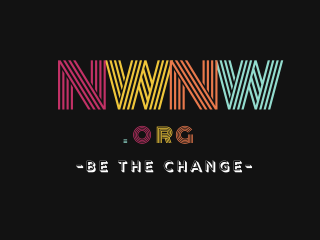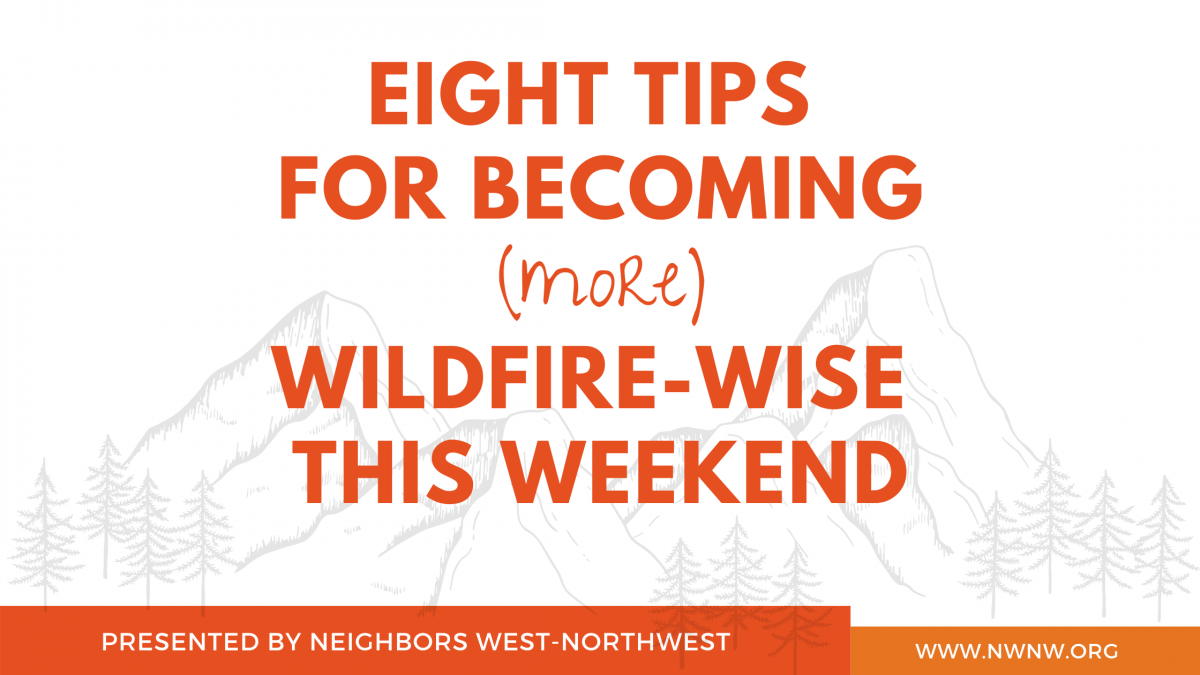EIGHT TIPS TO BECOME WILDFIRE WISE THIS WEEKEND
1. Sign Up for Public Safety Alerts
First things first: make sure that you know when your community is at risk! Sign up for public safety alerts in Multnomah County to receive emergency notification for wildfires and other emergencies.
2. Identify Risky Behavior
Most wildfires are started by humans, so being able to identify risky behavior can help prevent a fire from starting. Risky behavior can include:
- Backyard burning
- Unsafe or unattended campfires
- Illegal fireworks or explosives
- Unsafe disposal of cigarettes
During wildfire season in Oregon (July through mid-October), keep an eye out for risky behavior in your community, particularly when the weather is hot, dry, and windy.
3. Tidy Up Your Space
Clear debris fallen leaves, pine needles, and branches from your deck, roof, porch, and gutters. Store away flammable items like furniture cushions or mats, and move potential sources of fuel such as woodpiles or spare lumber at least 30 feet from your home. Rake back mulch and trim plants and shrubs to at least 5 feet away from buildings or attachments. Consider pruning overhanging branches to at least 5 to 10 feet away from buildings, and low-hanging branches away from the ground to prevent fire from spreading. If you want to go the extra mile, you can even look into switching to more fire-safe plants in your garden!
Note: Many resources about creating defensible fire spaces weren’t made for Oregon’s verdant climate, or for Portland’s rules and regulations that protect our trees. Keep our city green: take a moment to look here before pruning to make sure it checks out with city code.
4. Create a Go-Bag
Creating an emergency bag is essential for if you have to evacuate quickly! Your go-bag should consist of a set of extra items that you don’t require, and should live by the front door or in your car. Below is a list of some items you can include in your bag:
- Face masks or coverings
- Extra prescription medicines or medical supplies
- Extra glasses or contacts
- A First-Aid kit
- Flashlight and extra batteries
- Portable radio and extra batteries
- Chargers and charging bank
- Cash or credit cards
- A change of clothing (including shoes!)
- Non-perishable human and pet food
Essential items that can’t live in the go bag such as important paperwork, expensive technology, or irreplaceable memorabilia should be put on a checklist (including their locations!) to collect before you evacuate so that nothing is left behind!
5. Assign Evacuation Tasks
Take the time to sit down with your household and assign tasks in case of evacuation. Knowing what to do and who does what will help make sure that everything gets done, even in a state of panic. Some suggestions for evacuation tasks are below:
- Turn off the gas and water
- Close and seal windows and doors
- Collect items on your evacuation list
- Find and help small children or elders
- Gather pets and pet carriers
- Grab the prepared go-bag
Make sure to establish a meeting location (by the car, for example) for everyone to meet up when they have finished their tasks!
6. Plan Your Evacuation Route
It’s always good to know where you’re going! Ahead of time, choose a safe evacuation destination, such as a friend or relative’s home. Make sure that you have several evacuation routes prepared and practiced in case one is blocked by fire. For high-risk neighborhoods like Forest Park and Linnton, Portland has designated some potential routes in this document, starting on page 36.
7. Check-In with Your Neighbors
Some members of your community may lack the necessary resources when evacuating, such as a car or a safe evacuation destination. Others may need extra assistance if they have children, elders, or disabled household members. Check in with the neighbors on either side of you (at least!) to make sure they have the necessary resources to evacuate safely, or to see if they are able to assist you!
8. Spread This Information Like…
Help your neighborhood become wildfire wise by sharing this flyer with family and friends on social media. Share your own evacuation plan with your neighbors and encourage them to make their own. The more people in your community that are informed, active, and prepared for wildfire, the safer your neighborhood will be!
Bear in mind that these tips are only suggestions: if there’s something we’ve missed, make sure to share it with your community to help make us all safer!

